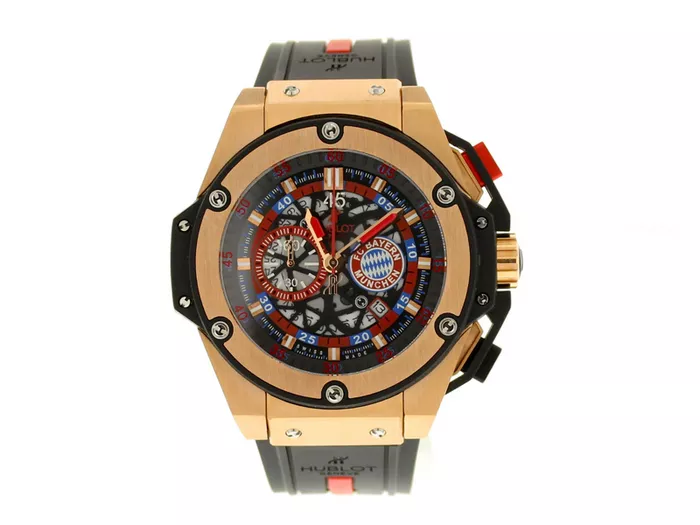The Rolex clock at Wimbledon is a symbol of precision, elegance, and the prestigious partnership between Rolex and the Wimbledon Championships. Rolex has been the official timekeeper of Wimbledon since 1978, and their clocks are prominently displayed around the grounds, including the iconic Centre Court. In this article, we will delve into the details of the Rolex clocks at Wimbledon, exploring their history, significance, craftsmanship, and estimated value. We will also examine the broader context of Rolex’s association with the world of sports and the unique factors that contribute to the worth of these timepieces.
History of Rolex and Wimbledon Partnership
Origins of the Partnership
The partnership between Rolex and Wimbledon began in 1978, marking the start of a long-standing relationship between the luxury watchmaker and one of the most prestigious tennis tournaments in the world. This collaboration was born out of a shared commitment to excellence, tradition, and performance.
Evolution of the Partnership
Over the years, the partnership has evolved, with Rolex becoming an integral part of the Wimbledon experience. The brand’s iconic clocks and watches are now synonymous with the tournament, underscoring the precision and timing that are crucial to the sport of tennis.
Significance of the Rolex Clocks at Wimbledon
Symbol of Precision
The Rolex clocks at Wimbledon symbolize the precision required in both watchmaking and professional tennis. They are a reminder of the importance of accuracy in both timekeeping and athletic performance.
Iconic Presence
The clocks are strategically placed around the Wimbledon grounds, including Centre Court and other key locations. Their presence is not only functional but also adds to the prestige and elegance of the tournament.
Brand Prestige
Rolex’s association with Wimbledon enhances the brand’s image as a purveyor of luxury and precision. This partnership aligns Rolex with one of the most esteemed sporting events, reinforcing its status as a top-tier watchmaker.
Craftsmanship and Design of Rolex Clocks
Design Aesthetics
The design of the Rolex clocks at Wimbledon reflects the brand’s commitment to elegance and functionality. These clocks feature classic Rolex design elements, including the iconic green and gold color scheme, Roman numerals, and the Rolex crown logo.
Engineering Excellence
The engineering behind the Rolex clocks ensures they are not only aesthetically pleasing but also highly accurate and reliable. The clocks are built to withstand the elements and maintain precise timekeeping throughout the tournament.
Materials Used
Rolex uses high-quality materials in the construction of their clocks, ensuring durability and longevity. The use of premium metals and advanced manufacturing techniques highlights Rolex’s dedication to quality.
Estimating the Value of the Rolex Clocks at Wimbledon
Factors Influencing Value
Several factors influence the value of the Rolex clocks at Wimbledon, including their rarity, craftsmanship, historical significance, and brand prestige. These clocks are unique pieces of horological art that are not available for public purchase, adding to their exclusivity and desirability.
Market Comparisons
While it is challenging to assign a precise monetary value to the Rolex clocks at Wimbledon due to their unique status, comparisons can be made with other high-value Rolex timepieces and limited-edition clocks. The brand’s reputation and the clocks’ association with a prestigious event like Wimbledon contribute significantly to their worth.
Expert Valuations
Experts in the field of horology and luxury timepieces can provide insights into the estimated value of the Rolex clocks at Wimbledon. These valuations consider the clocks’ craftsmanship, rarity, and the historical significance of their association with the tournament.
The Broader Context of Rolex in Sports
Rolex and Tennis
Rolex’s involvement in tennis extends beyond Wimbledon. The brand is also the official timekeeper for other major tennis tournaments, including the Australian Open and the US Open. This widespread presence in the sport underscores Rolex’s commitment to tennis and further enhances the brand’s image.
Rolex in Other Sports
In addition to tennis, Rolex has partnerships with various other sports, including golf, sailing, and motorsports. These collaborations highlight the brand’s dedication to precision, performance, and excellence across a range of disciplines.
Brand Ambassadors
Rolex’s roster of brand ambassadors includes some of the most celebrated athletes in the world. These ambassadors embody the brand’s values and help promote its image of luxury and precision in the sports arena.
See Also: Do Real Rolex Have Batteries
Unique Factors Contributing to the Worth of Wimbledon Rolex Clocks
Limited Availability
The Rolex clocks at Wimbledon are not available for purchase by the general public, making them exceptionally rare and exclusive. This limited availability significantly enhances their perceived value and desirability.
Historical Significance
The long-standing partnership between Rolex and Wimbledon adds historical significance to these clocks. They are part of the tournament’s heritage and symbolize the enduring relationship between two iconic brands.
Collectible Value
For collectors of horological and sports memorabilia, the Rolex clocks at Wimbledon represent a unique and valuable addition to their collections. The combination of craftsmanship, rarity, and historical importance makes these clocks highly sought after.
Conclusion
The Rolex clocks at Wimbledon are more than just timekeeping devices; they are symbols of precision, luxury, and tradition. Their association with one of the most prestigious tennis tournaments in the world enhances their value and significance. While it is challenging to assign a precise monetary value to these unique timepieces, their rarity, craftsmanship, and historical importance contribute to their worth. As a brand, Rolex’s involvement in sports, particularly tennis, underscores its commitment to excellence and performance. The Rolex clocks at Wimbledon stand as a testament to this legacy, making them invaluable icons of both horology and sports history.

